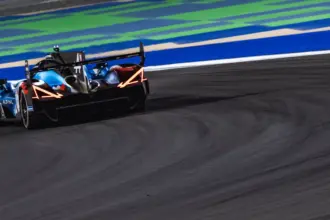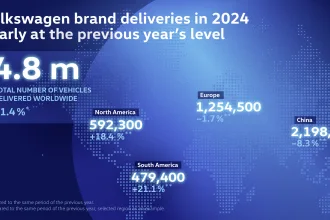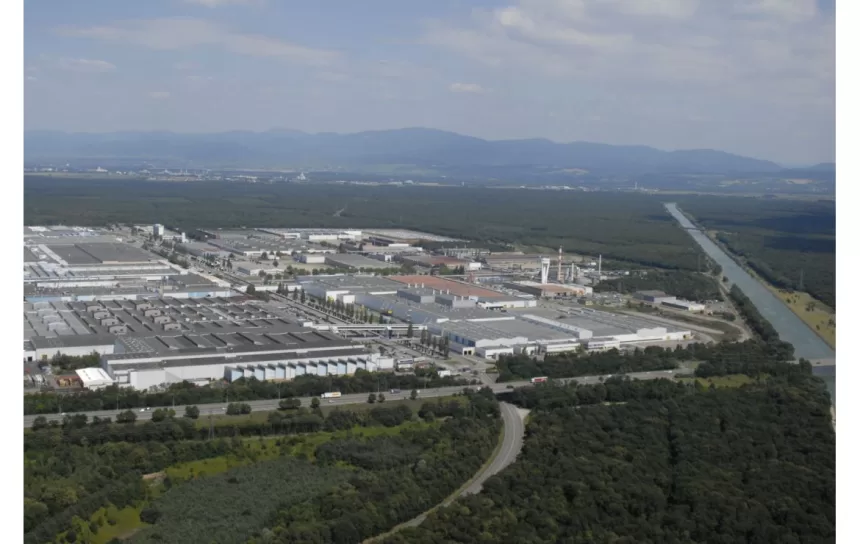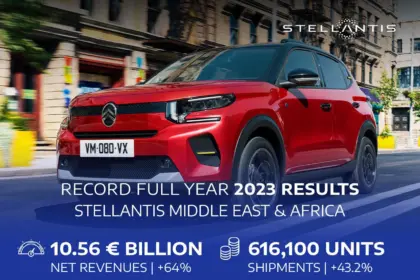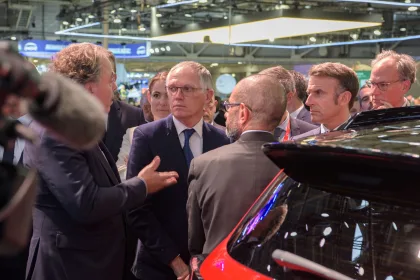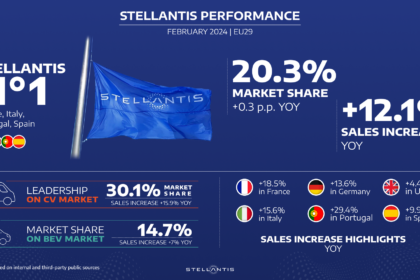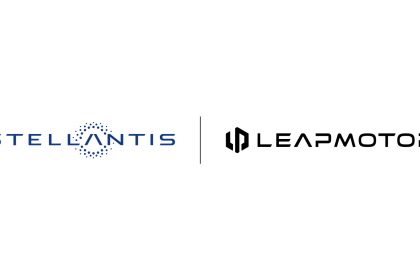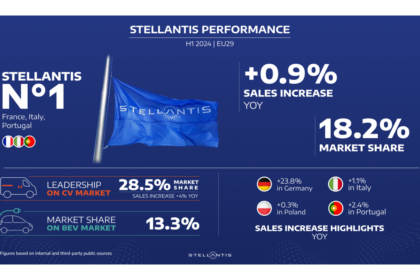- Vulcan and Stellantis sign fourth agreement together after:
- a binding lithium hydroxide supply agreement signed in 2021
- an equity investment and lithium hydroxide supply agreement in 2022
- a joint renewable energy project development term sheet for the Stellantis Rüsselsheim plant in Germany signed in 2023
- Agreement represents first joint project in France for the potential use of geothermal energy to decarbonize and localize the energy supply for Stellantis’ European operations
- Stellantis’ ambitious decarbonization strategy includes achieving carbon net zero by 2038 with a 50% reduction by end of the decade
- Vulcan is developing integrated lithium chemicals and geothermal renewable energy production, from its Zero Carbon Lithium™ Project in the Upper Rhine Valley in Germany and France with its sorption-type direct lithium extraction (DLE) optimization plant under construction in Germany following two years of successful pilot plant operations
- Agreement with Stellantis increases Vulcan’s decarbonizing impact on the European electric vehicle industry, complementing the carbon avoidance from its Zero Carbon Lithium™ Project
Stellantis N.V. and Vulcan Energy Resources Limited have signed a binding term sheet for the first phase of a multiphase project to develop new geothermal projects aimed at decarbonizing the energy mix of Stellantis’ Mulhouse industrial site in France, which is home to the DS 7, Peugeot 308 and e-308, 508, and the new 408. Based upon current assumptions, the project could provide a significant portion of the industrial site’s annual energy needs starting in 2026.
“We are proud to announce another step in our partnership with Vulcan, which demonstrates our commitment to increase the use of decarbonized energy solutions across our facilities,” said Arnaud Deboeuf, Stellantis Chief Manufacturing Officer. “Geothermal is one of many solutions we are exploring to achieve our carbon net zero goal by 2038, in alignment with our Dare Forward 2030 strategic plan.”
The first phase of the project, located at the southernmost extent of Vulcan’s focus area in the Upper Rhine Valley, will include a pre-feasibility study (PFS) for the construction of geothermal renewable energy assets for Stellantis’ facility, carried out by Vulcan which will also assess potential for lithium production. If successful, the next phase will focus on 3D seismic exploration and more advanced studies and development. Subject to a successful PFS, Stellantis and Vulcan aim to develop the project jointly on a 50:50 basis.
In November 2022, Vulcan announced that it had started a number of initiatives to expand its geothermal renewable energy and Zero Carbon Lithium™ business into France and specifically Alsace, which accounts for roughly one third of the Upper Rhine Graben. Vulcan has applied over the Mulhouse area for an exclusive lithium and geothermal license to secure another 480 km² of development area within the Upper Rhine Graben Valley Brine Field.
According to the term sheet, Vulcan’s team will perform a lithium mineral resource assessment according to the JORC Code. Vulcan Zero Carbon LithiumTM project is aligned with the creation of the “French Mineral Resources Observatory” that aims to analyse the French critical raw materials resources and provide recommendations for public investment that will be supported by the recently announced new 2 billion euro “French Critical Raw Materials Fund”.
Stellantis embraces a holistic approach to decarbonization and is on track to become a carbon net zero corporation, all scopes included, by 2038, with single-digit percentage compensation of remaining emissions. The agreement with Vulcan Energy marks Stellantis’ second potential use of renewable geothermal energy to decarbonize and localize its energy supply at an industrial site.
“Vulcan’s core mission is decarbonisation, through renewable energy and carbon neutral lithium supply,” said Vulcan Managing Director and CEO, Dr. Francis Wedin. “Vulcan is here to support Stellantis, our largest lithium customer and one of our major shareholders, to decarbonise its operations in Europe. While we remain focused on our Phase One geothermal-lithium developments in the center of the Upper Rhine Valley Brine Field, this project is a complementary opportunity to expand our future development pipeline to some of the outer lying areas in the Upper Rhine Valley, supported by industrial partners like Stellantis.”
“Stellantis is a major industrial player in the automotive sector in the Grand Est. This is why the Region wanted to support the group in its transition to electric. With this strategic partnership, transformation to create the industry of the future and the fight against global warming are taking shape in our Region thanks to a rational exploitation of geothermal energy,” said Franck Leroy, President of the Grand Est Region.
The agreement with Stellantis also increases Vulcan’s decarbonizing impact on the European electric vehicle industry, complementing the carbon avoidance from its Zero Carbon Lithium™ Project, and creating shareholder value.

